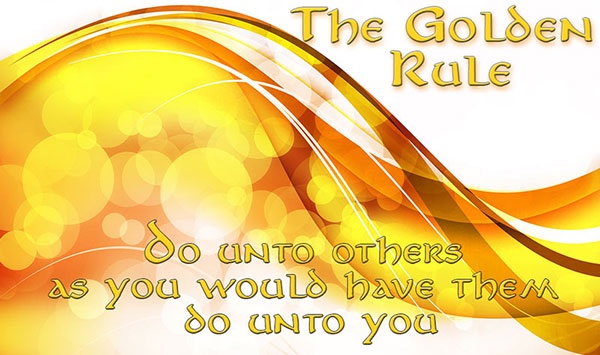In a world often divided by ideologies, cultures, and beliefs, one principle stands as a timeless beacon of moral guidance: the Golden Rule. Rooted in the teachings of various religions and philosophies across the globe, this fundamental precept encapsulates the essence of empathy, compassion, and reciprocity. From the halls of ancient wisdom to the teachings of modern-day spirituality, the Golden Rule resonates as a universal truth, transcending boundaries and uniting humanity under a common moral imperative.
At its core, the Golden Rule advocates treating others as one would wish to be treated oneself. This simple yet profound concept serves as a cornerstone of ethical conduct, offering a guiding light in navigating the complexities of human interactions. From the teachings of Confucius to the sermons of Jesus Christ, variations of this principle echo throughout history, affirming its enduring relevance in shaping virtuous lives.
The wisdom of the Golden Rule finds expression in diverse religious traditions, each offering its own interpretation of this fundamental ethic. In Christianity, Jesus encapsulated the essence of this principle in his famous words: “Do unto others as you would have them do unto you” (Matthew 7:12). This teaching underscores the importance of empathy and kindness in fostering harmonious relationships within communities.
Similarly, Islam upholds the Golden Rule through the teachings of Prophet Muhammad, who stated, “None of you [truly] believes until he wishes for his brother what he wishes for himself” (Sahih al-Bukhari). This Hadith emphasizes the interconnectedness of humanity and the imperative of extending goodwill and compassion to others.
Buddhism, with its emphasis on compassion and non-harming, echoes the Golden Rule in the teachings of the Dalai Lama, who advocates, “Our prime purpose in this life is to help others. And if you can’t help them, at least don’t hurt them.” This injunction highlights the moral imperative of cultivating empathy and alleviating the suffering of fellow beings.
In Hinduism, the concept of “Ahimsa,” or non-violence, embodies the spirit of the Golden Rule by promoting reverence for all living beings. Mahatma Gandhi, influenced by Hindu philosophy, famously articulated this principle, asserting, “The Golden Rule of conduct is mutual toleration, seeing that we will never all think alike and we shall always see Truth in fragment and from different angles of vision.”
Judaism also upholds the Golden Rule in the teachings of Rabbi Hillel, who proclaimed, “That which is hateful to you, do not do to your fellow. That is the whole Torah; the rest is the explanation; go and learn.” This encapsulation underscores the central importance of empathy and compassion in Jewish ethics.
From the teachings of Sikhism, which emphasize the importance of selfless service and equality, to the principles of Jainism, which advocate reverence for all forms of life, the Golden Rule finds resonance across a myriad of religious and philosophical traditions. It serves as a moral compass, guiding individuals towards actions that uphold the dignity and well-being of all.
Beyond religious teachings, the Golden Rule finds practical application in everyday life, offering a blueprint for ethical decision-making in various contexts. In the realm of business, adhering to this principle fosters trust, respect, and collaboration among stakeholders. Companies that prioritize fair treatment of employees, customers, and partners not only cultivate a positive work culture but also contribute to long-term success and sustainability.
In politics and governance, leaders who govern with empathy and fairness uphold the spirit of the Golden Rule, seeking to serve the common good rather than personal interests. Policies guided by principles of justice, equality, and inclusivity reflect a commitment to treating all citizens with dignity and respect, irrespective of their backgrounds or beliefs.
Moreover, the Golden Rule resonates deeply in the realm of interpersonal relationships, shaping the way individuals interact with family, friends, and strangers alike. Simple acts of kindness, empathy, and compassion have the power to bridge divides, heal wounds, and foster a sense of belonging within communities.
Consider the story of the Good Samaritan, recounted in the New Testament, where a stranger extends compassion and assistance to a fellow traveler in need. This parable illustrates the transformative impact of embodying the Golden Rule in action, transcending social barriers and cultural differences to demonstrate genuine care and concern for others.
In conclusion, the Golden Rule stands as a timeless testament to the universal values of empathy, compassion, and reciprocity. Across religious, cultural, and philosophical divides, this principle serves as a moral lodestar, guiding humanity towards a more compassionate and harmonious coexistence. As we navigate the complexities of the modern world, let us heed the wisdom of the Golden Rule, striving to treat others with the same dignity, kindness, and respect that we ourselves desire. In doing so, we affirm our shared humanity and sow the seeds of a more just, compassionate, and interconnected world.







Discussion about this post